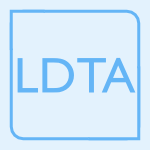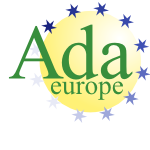Travelled to:1 × Germany
1 × Ireland
1 × Japan
1 × Spain
1 × Sweden
1 × Switzerland
12 × USA
2 × France
3 × The Netherlands
3 × United Kingdom
4 × Canada
Collaborated with:T.Rendel M.Mezini S.Erdweg C.Kästner K.Klose C.Hofer J.I.Brachthäuser P.G.Giarrusso J.Jabs Y.Cai M.Eichberg E.Walkingshaw S.T.Erdweg M.Achenbach R.Lämmel ∅ T.Schäfer J.Trieflinger S.Fehrenbach V.Gasiunas M.Leuschel E.Ernst W.R.Cook C.Bockisch P.Schuster A.Moors F.Rieger David Binder Ingo Skupin M.Kahl D.Saha I.Aracic M.Merz S.Kloppenburg B.Rank L.C.L.Kats E.Visser T.Berger A.Scibior O.Kammar M.Vákár S.Staton H.Yang Sean K. Moss C.Heunen Z.Ghahramani
Talks about:languag (8) softwar (4) modular (4) class (4) type (4) pars (4) pointcut (3) variabl (3) static (3) integr (3)
♂ Person: Klaus Ostermann
 DBLP: Ostermann:Klaus
DBLP: Ostermann:Klaus
Facilitated 9 volumes:
Contributed to:
Wrote 40 papers:
- ICFP-2015-RendelTO #automation #pattern matching #problem
- Automatic refunctionalization to a language with copattern matching: with applications to the expression problem (TR, JT, KO), pp. 269–279.
- GPCE-2014-WalkingshawO #editing #projectional
- Projectional editing of variational software (EW, KO), pp. 29–38.
- OOPSLA-2014-RendelBO #algebra #attribute grammar
- From object algebras to attribute grammars (TR, JIB, KO), pp. 377–395.
- PLDI-2014-CaiGRO #difference #formal method #higher-order #λ-calculus
- A theory of changes for higher-order languages: incrementalizing λ-calculi by static differentiation (YC, PGG, TR, KO), p. 17.
- SLE-2013-FehrenbachEO #domain-specific language #evolution
- Software Evolution to Domain-Specific Languages (SF, SE, KO), pp. 96–116.
- OOPSLA-2012-KastnerOE #variability
- A variability-aware module system (CK, KO, SE), pp. 773–792.
- SLE-2012-ErdwegRKO #generalised parsing #parsing
- Layout-Sensitive Generalized Parsing (SE, TR, CK, KO), pp. 244–263.
- ECOOP-2011-OstermannGKR #composition #information management
- Revisiting Information Hiding: Reflections on Classical and Nonclassical Modularity (KO, PGG, CK, TR), pp. 155–178.
- GPCE-2011-ErdwegKRKOV #editing #library
- Growing a language environment with editor libraries (SE, LCLK, TR, CK, KO, EV), pp. 167–176.
- OOPSLA-2011-ErdwegRKO #named
- SugarJ: library-based syntactic language extensibility (SE, TR, CK, KO), pp. 391–406.
- OOPSLA-2011-KastnerGREOB #compilation #metaprogramming #parsing #variability
- Variability-aware parsing in the presence of lexical macros and conditional compilation (CK, PGG, TR, SE, KO, TB), pp. 805–824.
- GPCE-2010-HoferO #component #composition #domain-specific language #scala
- Modular domain-specific language components in scala (CH, KO), pp. 83–92.
- OOPSLA-2010-KloseO #composition #logic #metaprogramming
- Modular logic metaprogramming (KK, KO), pp. 484–503.
- SLE-2010-ErdwegO #correctness #parsing #tex
- Featherweight TeX and Parser Correctness (STE, KO), pp. 397–416.
- PLDI-2009-RendelOH #self
- Typed self-representation (TR, KO, CH), pp. 293–303.
- SCAM-2009-AchenbachO #abstraction #model checking #testing
- Engineering Abstractions in Model Checking and Testing (MA, KO), pp. 137–146.
- TOOLS-EUROPE-2009-KloseO #aspect-oriented #classification #framework #monitoring #runtime
- A Classification Framework for Pointcut Languages in Runtime Monitoring (KK, KO), pp. 289–307.
- GPCE-2008-HoferORM #domain-specific language #polymorphism
- Polymorphic embedding of dsls (CH, KO, TR, AM), pp. 137–148.
- OOPSLA-2007-GasiunasMO
- Dependent classes (VG, MM, KO), pp. 133–152.
- PADL-2007-EichbergKSMO #analysis #automation #prolog
- Automatic Incrementalization of Prolog Based Static Analyses (ME, MK, DS, MM, KO), pp. 109–123.
- PADL-2007-KloseOL #partial evaluation
- Partial Evaluation of Pointcuts (KK, KO, ML), pp. 320–334.
- WCRE-2007-SchaferAMMO #clustering #framework #generative
- Clustering for Generating Framework Top-Level Views (TS, IA, MM, MM, KO), pp. 239–248.
- ASE-2006-EichbergMKOR #analysis #scheduling #set
- Integrating and Scheduling an Open Set of Static Analyses (ME, MM, SK, KO, BR), pp. 113–122.
- GPCE-2006-LammelO #integration
- Software extension and integration with type classes (RL, KO), pp. 161–170.
- POPL-2006-ErnstOC #calculus
- A virtual class calculus (EE, KO, WRC), pp. 270–282.
- ECOOP-2005-OstermannMB #composition
- Expressive Pointcuts for Increased Modularity (KO, MM, CB), pp. 214–240.
- FSE-2004-MeziniO #aspect-oriented #feature model #programming #variability
- Variability management with feature-oriented programming and aspects (MM, KO), pp. 127–136.
- WCRE-2004-EichbergMOS #development #kernel #named
- XIRC: A Kernel for Cross-Artifact Information Engineering in Software Development Environments (ME, MM, KO, TS), pp. 182–191.
- AdaEurope-2003-MeziniO #modelling
- Modules for Crosscutting Models (MM, KO), pp. 24–44.
- ECOOP-2002-Ostermann #composition
- Dynamically Composable Collaborations with Delegation Layers (KO), pp. 89–110.
- OOPSLA-2002-MeziniO #component #independence #on-demand
- Integrating independent components with on-demand remodularization (MM, KO), pp. 52–67.
- OOPSLA-2001-OstermannM #composition #object-oriented
- Object-Oriented Composition Untangled (KO, MM), pp. 283–299.
- ESOP-2018-OstermannJ #algebra #data type #matrix
- Dualizing Generalized Algebraic Data Types by Matrix Transposition (KO, JJ), pp. 60–85.
- Haskell-2010-RendelO #parsing #pretty-printing #syntax
- Invertible syntax descriptions: unifying parsing and pretty printing (TR, KO), pp. 1–12.
- Haskell-2012-ErdwegRRO #haskell
- Layout-sensitive language extensibility with SugarHaskell (SE, FR, TR, KO), pp. 149–160.
- OOPSLA-2016-BrachthauserRO #parsing
- Parsing with first-class derivatives (JIB, TR, KO), pp. 588–606.
- OOPSLA-2018-BrachthauserSO
- Effect handlers for the masses (JIB, PS, KO), p. 27.
- POPL-2016-CaiGO #data type #programming #recursion
- System f-omega with equirecursive types for datatype-generic programming (YC, PGG, KO), pp. 30–43.
- POPL-2018-ScibiorKVSYCOMH #higher-order #validation
- Denotational validation of higher-order Bayesian inference (AS, OK, MV, SS, HY, YC, KO, SKM, CH, ZG), p. 29.
- POPL-2020-BinderJSO #composition #symmetry
- Decomposition diversity with symmetric data and codata (DB, JJ, IS, KO), p. 28.





























